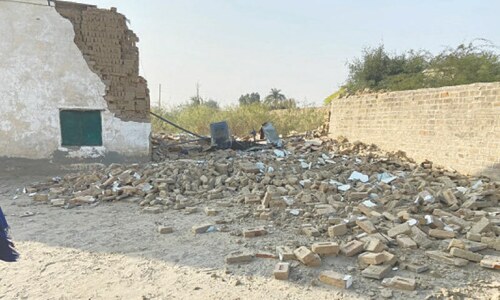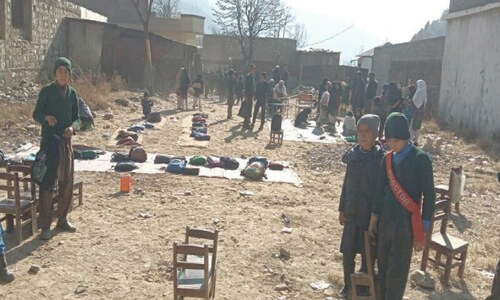PESHAWAR: The Peshawar High Court has declared as legal the Khyber Pakhtunkhwa Environmental Protection Agency (EPA) guidelines for the installation of mobile phones base transceiver stations (phone towers) and rejected plea of a leading company in the field challenging its legality.
A bench consisting of PHC Chief Justice Qaiser Rashid Khan and Justice Ijaz Anwar ruled that the impugned “guidelines for installation of base transceiver station sites” prepared by EPA were in line with the KP Environmental Protection Act, 2014 and the rules and regulations.
“As such, the arguments advanced by the learned counsel for the petitioner representing the China Mobile Pakistan with respect to the validity and legality of the vires of the impugned ‘guidelines’ being based on misconception are hereby overruled,” the bench ordered.
The bench directed EPA to perform its obligatory duties towards the BTS sites strictly in accordance with the KP Environmental Protection Act, 2014 and the rules and regulations and guidelines framed under it.
Bench observes petitioners can seek legal remedy from relevant forum
The court has released a 35-page detailed judgment authored by the PHC Chief Justice Qaiser Rashid Khan in five petitions related to BTS installation.
One of the petitions was filed by Advocate Noor Alam Khan on behalf of a citizen Mohammad Naeem, who claimed that setting up of BTS had adverse effects on human health.
He requested the court to issue directions to different respondents including Pakistan Telecommunication Authority (PTA), EPA, KP government and heads of different mobile phone companies to avoid installation of BTS and microwave antennas in sensitive areas situated around schools, hospitals, parks and crowded residential areas.
Another petition was filed by advocates Saifullah Muhib Kakakhel and Nauman Muhib Kakakhel on behalf of a citizen Dr Khalid Shah, challenging installation of a BTS at a park in Defence Officers Colony.
They contended that guidelines were issued by International Commission on Non-Ionising Radiation Protection (ICNIRP) in 1998 for the installation of mobile phone towers and in furtherance of those, guidelines were also issued by EPA that said that the towers should be placed in safe distance from houses, public places and schools.
Two other petitions were also filed by citizens, requesting for implementation of the impugned guidelines.
Furthermore, the Chinese company had filed the petition questioning the legality of the “guidelines for installation of BTS sites.”
The company claimed that EPA was established under the KP Environmental Protection Act, 2014 and its functions and powers were provided in section 6 and 7 of the Act, which included the administration and implementation of the provisions of the Act and the rules under it while the agency itself had no powers to make rules, regulations and guidelines.
KP Advocate General Shumail Ahmad Butt contended that since EPA had made the impugned guidelines on the recommendations of the Environmental Assessment Advisory Committee of the Senate and the PTA’s Protection from Health Related Effects of Radio Base Station Antennas Regulations, 2009, along with ICNIRP, therefore the same could not be declared as illegal.
The bench explained in the judgment different provisions of the Act and the relevant rules in detail.
“It is abundantly clear from the above provisions of the KP Environmental Protection Act, 2014 and the rules and regulations made under it as well as the comments furnished by the Pakistan Telecommunication Authority that not only the Environmental Protection Agency is competent to make the impugned guidelines to streamline the installation and operation of the BTS towers of the various mobile companies across the province but also to establish standards for the quality of the ambient air, water and land by notification; conduct environmental audits of those units established before the commencement of this Act and initiate legislation in various sectors of the environment,” it ruled.
The bench ruled that since the BTS tower fell in schedule-IV to the KP Environmental Assessment Rules, 2021, therefore, the petitioner (Chinese company) and other mobile firms were to file initial environmental examination (IEE), environmental impact assessment (EIA) and general environmental approval (GEA), respectively, with the EPA.
The bench disposed of the petitions of the citizens observing that a proper procedure and mechanism had been provided in the KP Environmental Protection Act, therefore, they could seek their legal remedy from the relevant forum.
The bench observed that with the passing of time those petitions had become infructuous as the court had already issued directions to EPA for the removal of such mobile/BTS towers, which did not conform to the requirement of PTA and EPA as well as international health standards.
Published in Dawn, October 24th, 2022














































Dear visitor, the comments section is undergoing an overhaul and will return soon.